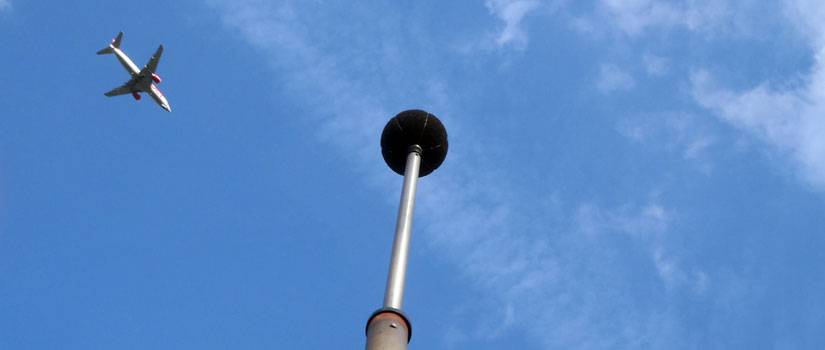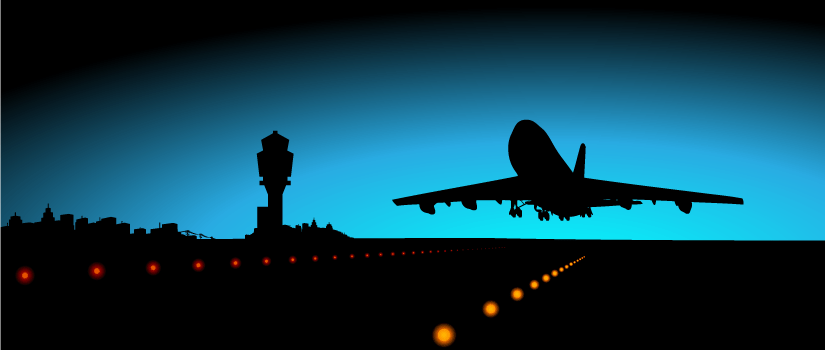Edinburgh pledges action to tackle airport noise
It’s a topic that comes up quite regularly, especially when discussing noise pollution and its effects on local communities, but airport noise is once again back in the news although this time, it appears to be a positive story. Management at Edinburgh Airport has recently made a commitment to reduce the number of night-time flights, in an attempt to tackle the noise disturbance suffered by hundreds of local residents. The issue has been fought for some time by Edinburgh West Liberal Democrat MP, Christine Jardine, who told the Edinburgh Evening News, that she had received assurances from airport bosses that action would definitely be taken to combat noise nuisance from night-time flights:
There has been a marked effort by the airport to engage with the public and I am glad they are taking positive steps. Night flights and the disturbance they cause are an issue frequently brought to me by constituents. I look forward to seeing the package of measures the airport propose.
Read more at: https://www.edinburghnews.scotsman.com/our-region/edinburgh/edinburgh-airport-pledges-action-on-night-flights-1-4772976
This news comes shortly after Cirrus Environmental spent time working with Casper Noise Lab at Edinburgh Airport, to put into place a noise monitoring system that measures and monitors air traffic.
A survey was carried out by the Edinburgh West MP, which showed that 295 of the 710 who responded suffered from the high noise levels of night-time flights, with 449 people saying that they would support action being taken to reduce the number of night flights. It has been highlighted that Edinburgh Airport is not subject to any restrictions on its operating hours, meaning that in theory, there is no obligation to do anything about the disturbance caused by night flights. However, the fact that the airport’s management has taken on board the research conducted by Christine Jardine and has reached out to Cirrus Environmental, shows their commitment to tackling noise disturbance and ultimately, to protecting the health and well-being of local residents.
Just how these night flight restrictions will work remains unclear, but the management of Edinburgh Airport must be commended for leading the way in reducing airport noise.
Looking for a solution to help monitor airport noise? We can help! Find out how.
 Why is it important to tackle airport noise?
Why is it important to tackle airport noise?
Airports and aircraft are noisy. No one is going to be shocked to hear that. Whether it’s the hustle and bustle of terminal traffic or the roar of Rolls-Royce engines firing up and aircraft take off, it’s difficult to imagine just how airports can be made quieter. In fact, the Civil Aviation Authority has put together an 85-page document detailing the various ways in which airports and aircraft can be made quieter. Unfortunately, I haven’t quite found the time to read through it yet (I’ve added it my reading list though), but like with the news from Edinburgh Airport, it just goes to show that there are things that can and are being done to tackle airport noise. But why is it so important? We all know the airports and aircraft are noisy, so why do we need to tackle airport noise?
A study published in the British Medical Journal in 2013 looked at the impact of aircraft and airport noise on local residents living near Heathrow Airport. The research showed that there was a direct correlation between the level of noise experienced, and the severity and nature of hospital admissions; the higher the level of noise someone is exposed to, the more likely it is that they could be admitted to hospital with serious health conditions such as stroke, coronary heart disease and cardiovascular disease, all of which lead to a higher rate of mortality. Although this research was specifically about the relationship between aircraft and airport noise and cardiovascular conditions, the severity of this link alone cannot be understated.
In addition to incredibly serious health conditions as listed above, it is known that excessive noise levels can cause hearing conditions such as tinnitus, hyperacusis and noise-induced hearing loss (NIHL). And it can get even worse. There is also a direct link between serious hearing conditions and mental health conditions such as depression and anxiety. Around 20,000 people in the UK suffer from work-related NIHL1; 900,000 people in the UK have severe or profound hearing loss and 10% of UK adults suffer from tinnitus2. Given the link to mental health conditions that I’ve just mentioned, it’s actually quite frightening to think about how many people’s lives have been so badly affected by excessive noise levels, whether it’s from occupational noise, road noise or indeed airport noise.
What’s clear is that we need to do everything we can to tackle excessive noise levels, and Cirrus Research has been in the business of doing exactly that for almost 50 years. Whether it’s occupational noise or environmental noise, we have the equipment to help businesses and organisations measure and monitor their noise levels, in order to take action to protect their employees and/or the general population from noise-related ill health.
1 http://www.hse.gov.uk/statistics/causdis/deafness/index.htm
2 https://www.actiononhearingloss.org.uk/about-us/our-research-and-evidence/facts-and-figures/
Jaymee-lee Tolliday
Latest posts by Jaymee-lee Tolliday (see all)
- Turning Down the Volume: How the Trojan Noise Nuisance Recorder can help create a quieter world - 13th February 2024
- Festive Opening Hours 2023 - 6th December 2023
- Award of Excellence for Cloud-Based Monitoring Solutions 2023! - 20th November 2023

